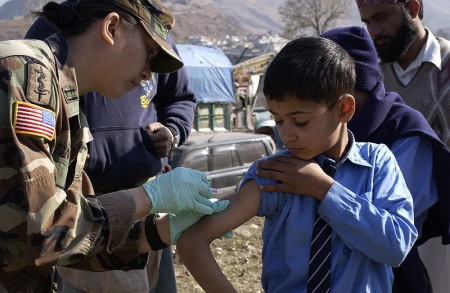
This article was originally published by the Council on Foreign Relations (CFR) on 31 May 2016.
Growing populations, rising global temperatures, urbanization, and easier trade and travel are all changing the world in ways conducive to the spread of infectious disease. The recent Ebola and Zika outbreaks have dominated news headlines and their toll has been terrible, but a more lethal infectious disease could do far worse harm.
“For infectious diseases, you cannot trust the past when planning for the future,” warned Margaret Chan, the head of the World Health Organization (WHO), at the World Health Assembly last week in Geneva. “What we are seeing,” she said, is “a dramatic resurgence of the threat from emerging and reemerging infectious diseases. The world is not prepared to cope.”

